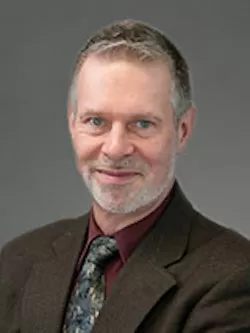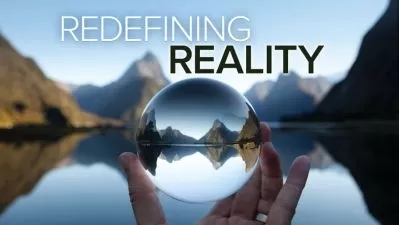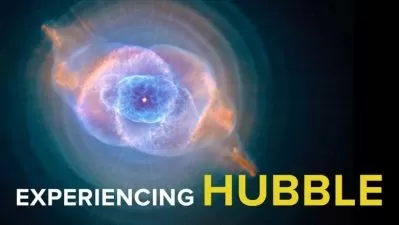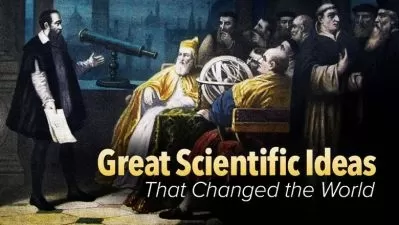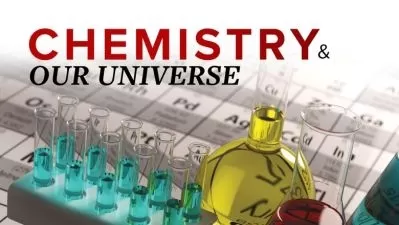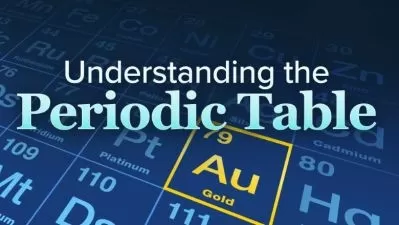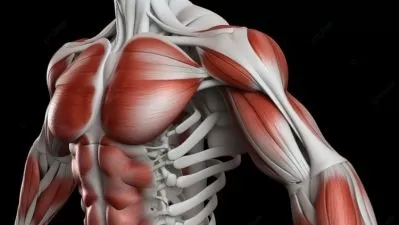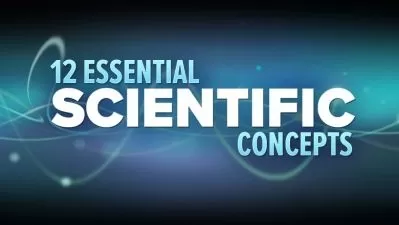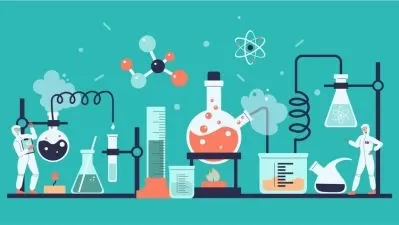Joy of Science
Robert M. Hazen
30:09:41
Description
English novelist and scientist C. P. Snow classed certain scientific ideas with the works of Shakespeare as something every educated person should know. One such idea, according to Snow, was the second law of thermodynamics, which deals with the diffusion of heat and has many profound consequences. He might well have added Newton's laws, the periodic table of elements, the double-helix structure of DNA, and scores of other masterpieces of scientific discovery.
Now, Professor Robert M. Hazen introduces these and other great ideas in 60 lectures that explore the fundamental discoveries and principles of all of the physical and biological sciences—physics, genetics, biology, astronomy, chemistry, meteorology, thermodynamics, and more.
A Passion for Teaching and ScienceProfessor Hazen is an apostle of science education for non-scientists, and he has few peers at rendering the most complex ideas simple, without being simplistic.
"I have a passion as a teacher," he says, "and that passion is to share with you the joy of science, the astonishing discoveries, the mind-bending insights, and the transforming applications of science as well."
A research scientist, professor, and advisor to public television's NOVA science series, Dr. Hazen helped draft the National Science Education Standards (National Academy of Sciences, 1997). These Standards represent a consensus among thousands of scientists and educators regarding the most effective approaches for teaching and learning about science.
These lectures have been specifically designed to introduce and review all of the scientific principles that are included in the Content Standards portion of the National Science Education Standards.
The result is a comprehensive and integrated introduction to all of science. By devoting just 30 minutes a day, you can complete this entire course in two months and discover an enhanced understanding of the physical world that will be a source of endless wonder and intellectual joy.
A Special Learning Opportunity
This course offers a special learning opportunity because:
- It steers clear of the jargon and mathematical abstractions that so often bedevil science education.
- It features an integrated approach that allows you as a learner to transcend artificial disciplinary boundaries in order to gain a panoramic view of the whole scientific enterprise in all its breathtaking scope.
The key to these achievements is Professor Hazen's insight that only a course organized around the common principles of scientific inquiry can put science in its proper light as a unique way of knowing.
Four Reasons to Become Scientifically Literate
Dr. Hazen cites four reasons why you should strive to become scientifically literate:
- Scientific literacy helps you as a consumer make informed decisions—about health care, diet, nutrition, exercise, environmental issues, and the plethora of technological choices that we all face.
- Many of today's jobs depend directly or indirectly on science as well as on technologies that are developed from scientific discoveries.
- Scientific literacy helps you provide your children with a firm foundation as they study science in school.
- Learning about science allows you to share the joy of humanity's greatest ongoing adventure of discovery and exploration.
What You'll Learn
Part I Highlights (Lectures 1–12):
Dr. Hazen begins by explaining the four-step cycle that defines the "scientific method" of knowing. He introduces you to five pivotal figures in early-modern science: Nicolas Copernicus, Tycho Brahe, Johannes Kepler, Galileo Galilei, and Isaac Newton. Astoundingly, during a single rural sojourn in 1665–66, Newton discovered calculus, many of the basic laws of optics, the three laws of motion, and the law of gravity. Newton's discoveries unified the supposedly separate domains of terrestrial and celestial motions.
Part II Highlights (Lectures 13–24):Dr. Hazen introduces you to H. C. Oersted, the little-known figure who paved the way for a revolution in technology with his finding that electricity can produce a magnetic field. Out of this discovery came the electromagnet, the telegraph, the telephone, the electric motor, the generator, and many other inventions. You will also learn how James Clerk Maxwell offered the first mathematically rigorous description of the close connection between electricity and magnetism—and how Einstein, pondering a paradox that arose from Maxwell's equations, proposed and explored the principle of relativity.
Dr. Hazen shifts the focus of his lectures to the nature of matter, paying particular attention to atoms and quantum mechanics. He explains the chemical bonding of atoms, the different states of matter, and the principal force of change in the world of matter: chemical reactions.
Part III Highlights (Lectures 25–36):Dr. Hazen then turns to the explanation of how specific physical systems work. Such systems manifest themselves in the properties of materials, as well as in the characteristics of atomic isotopes and their energy-producing nuclear reactions. You will learn about astronomy, the Big Bang theory, the solar system, and today's burgeoning field of extra-solar planetary systems.
Part IV Highlights (Lectures 37–48):Dr. Hazen devotes lectures to the constant recycling of Earth's materials—water, air, and rock. He explores the question, "What is life?" You'll examine life's molecular building blocks: carbohydrates, lipids, proteins, and nucleic acids. You'll learn how biological information is passed from parents to offspring, processes first quantified by the Czechoslovakian monk Gregor Mendel.
Part V Highlights (Lectures 49–60):Mendel's discoveries lead Dr. Hazen to focus on the great unifying biological principles of genetics, evolution, and ecosystems. He argues that no scientific discovery of the 20th century has had a greater impact than the deciphering of the genetic code, embedded in the double-helix structure of DNA first described in 1952 by James Watson and Francis Crick. Dr. Hazen goes on to address troubling ethical questions raised by genetic engineering. He examines both the chemical and biological evolution of life before delving into the interdependent communities of species and their physical environments known as ecosystems.
Dr. Hazen also raises questions about claims that science is approaching its end—that all there is of significance to be learned about the natural world will soon be known.
More details
User Reviews
Rating
Robert M. Hazen
Instructor's CoursesProfessor Hazen earned his bachelor’s and master’s degrees in geology from the Massachusetts Institute of Technology. He earned a Ph.D. in Earth Science from Harvard University and did post-doctoral work at Cambridge University in England before joining the Carnegie Institution. At Carnegie, Dr. Hazen’s research focuses on high-pressure organic synthesis and the origin of life.
Professor Hazen has authored 15 books, including the best-selling Science Matters: Achieving Scientific Literacy and The Sciences: An Integrated Approach. He has written over 220 articles for both scholarly and popular publications such as Newsweek, Scientific American, The New York Times Magazine, Technology Review, and Smithsonian Magazine.
He has received the Mineralogical Society of America Award, the American Chemical Society Ipatieff Prize, the Educational Press Association Award, the American Crystallographic Association’s Science Writing Award, and Fellowship in the American Association for the Advancement of Science.
Professor Hazen serves on the advisory boards for The National Committee for Science Education, Encyclopedia Americana, NOVA, and the Carnegie Council. He appears frequently on radio and television programs on science.

The Great Courses
View courses The Great Courses- language english
- Training sessions 62
- duration 30:09:41
- Release Date 2023/05/11





